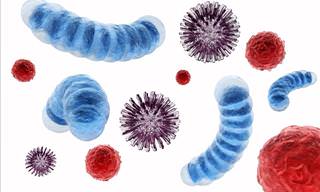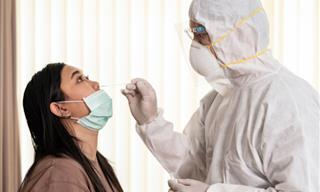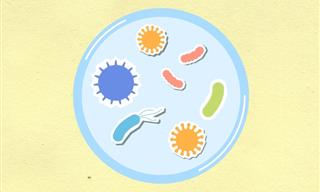The danger of antibiotic-resistant bacteria is nothing new. A decade following the discovery of penicillin in 1928, reports of E. coli strains resistant to the first antibiotic have been published.
Today, antibiotic resistance has given rise to "superbugs" - bacteria resistant to most or all existing antibiotics. Staphylococcus aureus is one of them. One potential way to fight these dangerous bacteria is through probiotic supplements. Early evidence confirms that a specific type of probiotic can treat and prevent staph infections.
A 2023 study published in the medical journal Lancet Microbe tested the effectiveness of this approach on humans in a Phase 2-clinical trial. Read more about this research paper below.
S. aureus infections – both widespread and dangerous

Methicillin-resistant S. aureus is the culprit behind MRSA, a worrisome bacterial infection. Usually, S. aureus leads to skin infections, but when the skin barrier is broken or the immune system is weakened, the bacterium can enter the bloodstream and lead to potentially fatal infections affecting the bones, lungs, and blood.
A little-known fact is that S. aureus often lives in humans' noses, skin, and guts without harm. Around a third of the world's population has an established colony of S. aureus in their body.
When a person is at high risk of developing a serious MRSA infection, such as when hospitalized, researchers have attempted to eradicate S. aureus from the skin and nose using topical antiseptics and antibiotics. However, such attempts to reduce the risk of dangerous infections have been largely unsuccessful. This is particularly because the gut has a much larger colony of S. aureus, and the bacteria quickly reestablish themselves on the nose and skin too.
Using oral antibiotics is dangerous because the lengthy therapy required would harm beneficial gut bacteria – explained the lead author of the study in question, Michael Otto, Ph.D., a National Institute of Health (NIH) senior investigator at the National Institute of Allergy and Infectious Diseases.
How probiotics can fight S. aureus

In the study, the researchers chose a different tactic for targeting S. aureus in the gut. Instead of wiping out all bacteria – both good and bad – they used a probiotic called Bacillus subtilis. This specific beneficial bacterium was mindfully chosen based on the team’s previous findings that people with Bacillus in their stool never had S. aureus too. Dr. Otto discovered that compounds called "fengycins" produced by Bacillus prevented S. aureus’ sensing system, which precluded it from multiplying.
One criticism you often encounter in probiotic research is that it’s unknown whether probiotics stay viable once they reach the gut. Bacillus subtilis survives in the gut when introduced orally. Importantly, Bacillus spores don’t harm the gut microbiome; the probiotic targets S. aureus without touching other gut bacteria. “The probiotic we use does not ‘kill’ S. aureus, but it specifically and strongly diminishes its capacity to colonize,” Dr. Otto explained in a news article for NIH. “We think we can target the ‘bad’ S. aureus while leaving the composition of the microbiota intact.”
The results of the study

The experiment was conducted in Thailand in conjunction with the Rajamangala University of Technology Srivijaya and Prince of Songkla University. The study recruited 115 healthy adults who were permanent carriers of S. aureus, meaning their nasal and stool samples contained the bacterium. The participants were randomly divided into two groups: 55 participants took one capsule of Bacillus every day for 30 days, whereas the remaining 60 people took placebo capsules.
After the month of treatment, the researchers evaluated the presence of S. aureus in the nose and gut again. As expected, there were no changes in the control group. However, participants who took the probiotic had a 96.8% reduction in S. aureus in stool and 65.4% in the nose. Crucially, the researchers also didn’t find any signs that the probiotic harmed the gut microbiome. Naturally, these impressive results show a massive drop in S. aureus after just four weeks of treatment.
Related article: Prebiotics & Probiotics: Benefits, Differences and Sources
What does this mean for everyday consumers?

Potentially, this means S. aureus infections could be prevented and treated with this specific probiotic. For consumers, however, there’s no use in taking Bacillus supplements. That’s because Dr. Otto and his colleagues are yet to establish whether or not probiotics continue to be effective and safe when taken for a longer time. The authors also note that a single month of treatment is probably not enough. Nor do they know whether Bacillus supplements available in stores are effective, given that food supplements are not regulated by the US Food and Drug Administration (FDA).
The next step for Dr. Otto and his team is conducting a larger and longer trial using Bacillus probiotic supplements available on the market. In a statement to Verywell Health, Otto shared some preliminary findings, stating that “not all strains on the market produce the molecules that are key to the desired effect on S. aureus.” Still, the research is quite exciting, as it may find a solution to the antibiotic resistance crisis – even if only for one specific pathogen.
References: NIH, UC San Diego Health, Verywell Health
 Go to BabaMail
Go to BabaMail




























